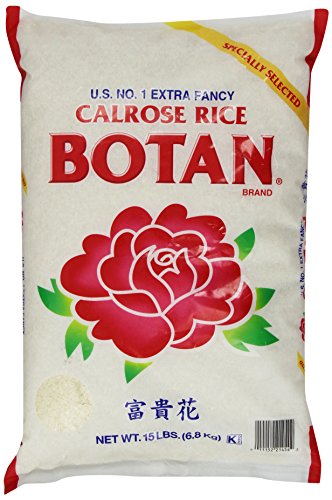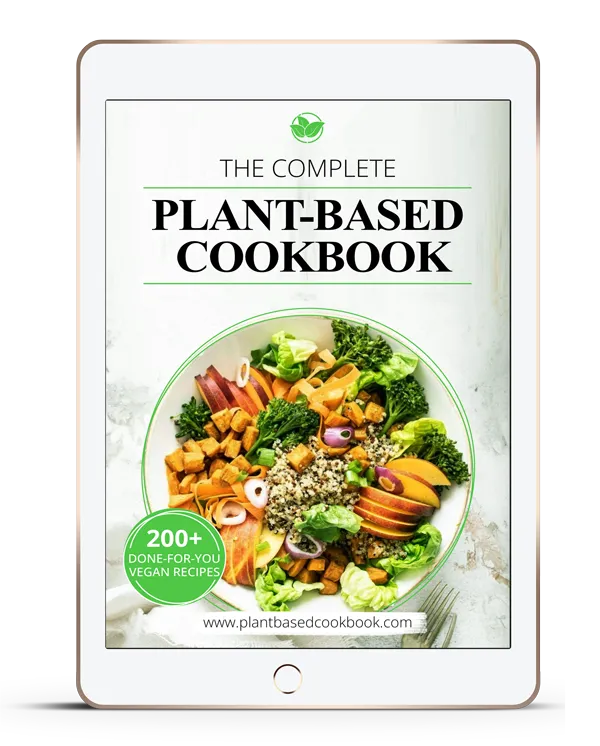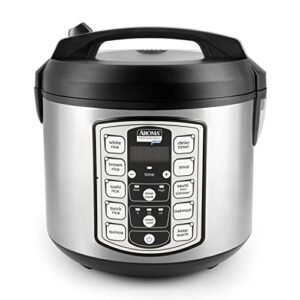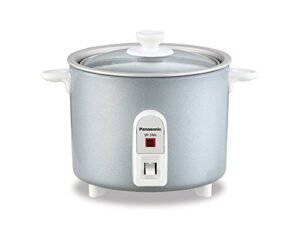So, you want to learn how to cook calrose rice? Well, congratulations on your desire for culinary knowledge. It’s pretty refreshing to see someone take an interest in a dish that is often overlooked and underappreciated. Calrose rice may seem like a simple grain, but mastering its preparation requires attention to detail and a willingness to adhere to strict guidelines.
Before we delve into the nitty-gritty of cooking calrose rice, let’s first understand what makes this particular type of rice unique. Calrose rice is a medium-grain variety that was originally developed in California. It has gained popularity over the years due to its versatility and ability to absorb flavors well. However, don’t be fooled by its unassuming appearance – calrose rice demands respect in the kitchen and does not suffer fools gladly. So strap on your apron, sharpen your knives, and let’s get started on our journey towards culinary freedom through the art of cooking Calrose rice.
Table of Contents
ToggleUnderstand the Characteristics of Calrose Rice
The unique characteristics of Calrose rice, including its medium grain size and sticky texture when cooked, make it a popular choice for a variety of dishes in Asian cuisine. This type of rice is often used to create sushi rolls, as the stickiness helps the rice hold its shape. Moreover, it also pairs well with other traditional dishes such as stir-fry or teriyaki chicken.
Calrose rice comes in different brands that offer various variations on the standard product. Some brands may have a slightly nuttier flavor than others or cook quicker. It is important to select a brand that best suits your preferences and cooking needs. Additionally, there are different grades of Calrose rice available, ranging from premium to regular quality.
When cooking Calrose rice, it is essential to understand its characteristics fully. The medium grain size ensures that the grains stay separate after cooking but still maintain their sticky texture. A general rule for cooking this type of rice involves rinsing it thoroughly before adding water and letting it soak for around 30 minutes before cooking. By understanding how to prepare and pair Calrose rice correctly, you can elevate any dish’s flavors while enjoying its unique texture and taste.
Rinse the Rice Properly
Properly rinsing calrose rice before cooking is an essential step in achieving a fluffy and delicious final product. Rinsing removes excess starch, dirt, and debris from the grains, which can affect the texture and flavor of the rice. It also helps to prevent clumping and stickiness during cooking.
To properly rinse calrose rice, start by measuring out the desired amount of rice into a fine-mesh strainer or colander. Rinse under cold running water while agitating the grains with your hands or a spoon. Continue rinsing until the water runs clear, indicating that all excess starch has been removed.
It is important not to skip this step or rush through it as improper rinsing can result in unevenly cooked or mushy rice. Additionally, avoid soaking calrose rice as this may cause it to become too soft when cooked. By following these proper rinsing techniques and cooking tips, you can ensure that your calrose rice turns out perfectly fluffy every time.
| Common Mistakes | Solution |
|---|---|
| Not rinsing rice at all | Always rinse your calrose rice before cooking |
| Using hot water for rinsing | Use cold running water for thorough cleaning |
| Rushing through the process | Take time to agitate grains properly until water runs clear |
| Soaking prior to cooking | Avoid soaking as it may lead to mushy texture after cooking |
Proper rinsing is crucial when preparing Calrose rice for consumption. This simple yet critical step ensures that any unwanted impurities are removed from the grains, resulting in a fluffy and well-cooked final product. Remember to take your time when rinsing and always use cold running water for optimal results -your taste buds will thank you!
Measure the Rice and Water
When preparing calrose rice, accurately measuring the amount of grains and water is a fundamental step that sets the foundation for achieving a perfectly cooked dish. Using appropriate measuring tools, such as a kitchen scale or measuring cup, allows for precision in portioning and ensures that the ratio of water to rice is optimal. Failing to measure accurately can lead to an unpleasant texture or taste, rendering all other cooking efforts futile.

The rice to water ratio is critical when it comes to cooking Calrose rice. The general rule of thumb is to use one and a half cups of water per cup of rice. However, different brands may have variations in their recommended ratios, and it’s essential to check the packaging instructions before proceeding with any recipe. The correct proportion will guarantee that every grain cooks evenly and yields fluffy results without being too sticky or mushy.
The importance of measuring accurately cannot be overstated when cooking Calrose rice. Over-measuring can result in excess moisture, leading to soggy and overcooked grains; under-measuring can cause crunchy or uncooked parts. Thus, investing time into accurate measurement sets the tone for success when making dishes like sushi rolls or stir-fry dishes where each grain needs to hold its shape while still maintaining tenderness. In summary, following precise measurements allows for consistency in quality across multiple cookings and offers more control over the final outcome than relying on guesswork alone.
- Use appropriate measuring tools: Kitchen scales or measuring cups allow for precision in portioning.
- Check packaging instructions: Different brands may have variations in their recommended ratios.
- Correct proportion guarantees even cooking: Every grain cooks evenly without being too sticky or mushy.
- Over-measuring leads to excess moisture: Resulting in soggy and overcooked grains.
- Under-measuring causes crunchy parts: Making it challenging to maintain tenderness while holding its shape.
Cook the Rice
The process of cooking calrose rice can be accomplished using several methods, including the stovetop method, rice cooker method, and instant pot method. Each technique offers distinct advantages in terms of efficiency, convenience, and flavor. To achieve optimal results, it is essential to follow specific guidelines for each approach and pay close attention to details such as water-to-rice ratios and cooking times.
Stovetop Method
To cook calrose rice on the stovetop, start by rinsing the rice in a fine mesh strainer until the water runs clear. Then, in a medium-sized pot with a tight-fitting lid, combine 1 cup of calrose rice with 2 cups of water and bring to a boil over high heat. Once boiling, reduce the heat to low and let simmer for 18-20 minutes or until all the water has been absorbed.
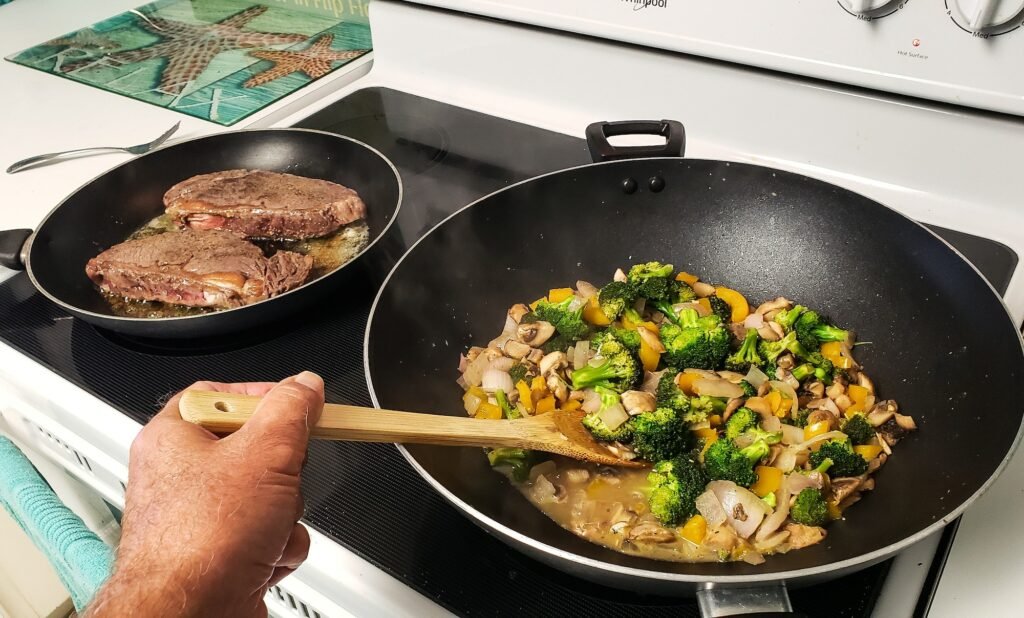
When cooking calrose rice on the stovetop, there are several variations and seasoning options available to enhance its flavor profile. For those seeking more variety in their dish, consider adding spices such as cumin or turmeric to give it an earthy aroma. Alternatively, use chicken or vegetable broth instead of water for added depth of flavor. For those wanting something simpler yet still flavorful, try using butter or olive oil as a base seasoning for an added richness that will elevate any meal. And finally, when serving your finished product – don’t forget to garnish with fresh herbs like cilantro or parsley – this will not only add color but also provide an extra dimension of taste that is sure to delight any palate seeking freedom from blandness.
Rice Cooker Method
While the stovetop method is a traditional way of cooking calrose rice, it may not always be the most efficient. This is where using a rice cooker comes in handy. Rice cookers have become increasingly popular due to their convenience and ease of use. Not only does it save time and effort, but it also ensures that the rice is cooked perfectly every time.
One of the biggest benefits of using a rice cooker is that once you put in the ingredients, there’s no need to monitor or stir constantly like with stovetop cooking. Additionally, rice cookers have different settings for different types of rice such as sushi or brown rice. This means that regardless of what type of calrose rice you’re cooking, the machine will adjust accordingly to ensure optimal results. While alternative cooking methods such as baking or microwaving are possible, they don’t offer the same level of precision and consistency as a dedicated rice cooker does.
Instant Pot Method
Interestingly, according to a recent survey, the Instant Pot has become one of the most popular kitchen appliances in the United States. With its ability to cook food quickly and efficiently, it’s no wonder why many people have turned to this versatile appliance. When it comes to cooking calrose rice, using an Instant Pot can provide several advantages over alternative cooking methods.
Here are four reasons why you should consider using an Instant Pot to cook calrose rice:
- Time-saving: Cooking calrose rice in an Instant Pot takes less time than traditional stove-top or rice cooker methods.
- Consistency: The pressure-cooking function of the Instant Pot ensures that every grain of rice is cooked evenly.
- Easy clean-up: Since you only need one pot for both cooking and serving, cleaning up after making calrose rice in an Instant Pot is quick and easy.
- Versatility: An Instant Pot can also be used for other recipes, making it a multifunctional tool in your kitchen.
Overall, using an Instant Pot provides several benefits when it comes to cooking calrose rice. Whether you’re short on time or looking for consistent results every time, this appliance is a great option to add to your kitchen arsenal.
Let the Rice Rest
Resting the rice after cooking is a crucial step in achieving perfect texture and flavor. This allows for the moisture to distribute evenly throughout the grains, resulting in a fluffy and tender consistency. When it comes to calrose rice, it is recommended to let it rest for at least 10-15 minutes before serving to ensure optimal results.
Why Rest Rice?
Allowing calrose rice to rest after cooking is a crucial step in achieving perfectly cooked rice. The benefits of resting rice are directly related to the importance of moisture in the process. When rice is cooked, the grains absorb water and become plump and tender. However, if the rice is immediately served or disturbed after cooking, the moisture may not distribute evenly throughout the grains, resulting in some parts being dry while others remain soggy.
Resting allows for the absorption and distribution of moisture within each grain of rice, creating a more uniform texture and flavor profile. The heat from cooking also continues to steam the grains during this time, allowing any remaining liquid to be absorbed fully. The result is a fluffy and flavorful calrose rice that has been given sufficient time to cool down slightly before serving. In conclusion, resting calrose rice is an essential step that should not be skipped if you want to achieve perfect results every time you cook it.
How Long to Rest Calrose Rice
A crucial aspect of achieving perfectly cooked calrose rice is to let it rest for an appropriate amount of time before serving. Resting the rice ensures that each grain has absorbed enough moisture and flavor, resulting in a tasty and satisfying dish. There are many benefits to resting rice, including enhancing its texture, taste, and aroma.
Different resting techniques can be used depending on personal preference and the desired end result. One technique involves covering the pot with a lid or towel after cooking and letting it sit for 10-15 minutes to allow steam to continue cooking the rice. Another technique is to spread out the cooked rice onto a baking sheet or tray, allowing it to cool down quickly while being fluffed occasionally with a fork. The third method involves using a steamer basket or colander over boiling water to keep the rice warm while preventing it from becoming soggy. Ultimately, choosing the right resting technique will depend on individual preferences and cooking style.
Serve and Enjoy!
To savor the flavors of Calrose rice, presentation tips are crucial. One way to elevate the dish is by garnishing it with fresh herbs, such as parsley or cilantro. Not only do these herbs add a pop of color to the plate, but they also provide an added layer of flavor that complements the nutty taste of the calrose rice.
In addition to garnishing with fresh herbs, pairing options can also enhance the eating experience. For example, calrose rice pairs well with a variety of proteins, including grilled chicken or fish. Additionally, incorporating vegetables into the dish can add texture and depth. Consider serving roasted vegetables on top of a bed of Calrose rice for a satisfying meal.
Once plated and paired with complementing flavors, it’s time to enjoy your delicious calrose rice dish. Take a moment to appreciate the care and attention put into preparing this nutritious grain. With its versatility and health benefits (such as being low in fat and high in fiber), it’s no wonder why calrose rice has become a staple in many households’ diets.
Conclusion
Calrose rice is a popular variety of medium-grain rice that originated in California. To cook it perfectly, it is essential to understand its characteristics and follow the proper steps. Before cooking, rinse the rice thoroughly to remove excess starch and debris. Measure the rice and water ratio accurately, using one cup of rice for every two cups of water.
The next step is to cook the rice on low heat for approximately 18-20 minutes until all the water has been absorbed. Once cooked, let the rice rest for about ten minutes before fluffing it up with a fork. This will ensure that each grain is separate and fluffy rather than clumping together.
One interesting statistic about Calrose rice is that it accounts for more than 80% of the total rice production in California, making it an integral part of California’s agricultural economy. This highlights how significant this type of rice is not only as a food item but also as an important crop in California’s agriculture industry.
In conclusion, cooking Calrose rice can seem daunting at first, but by following these simple steps, you can achieve perfect results every time. Remember to rinse the rice properly before cooking, measure your ingredients accurately and allow sufficient resting time after cooking before serving. By doing so, you can enjoy delicious fluffy Calrose Rice with your favorite dish while supporting the local agriculture industry in California!

